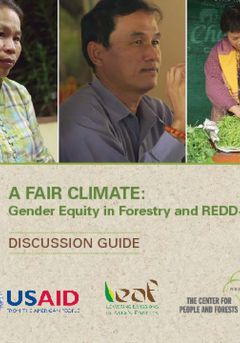Location
About Us
We envision a world in which land governance systems, both formal and informal, are effective, accessible, and responsive for all. This is possible when land tenure and property rights are recognized as critical development issues and when the United States Government and its development partners demonstrate consistent attention and a firm commitment to supporting coordinated policies and programs that clarify and strengthen the land tenure and property rights of all members of society, enabling broad-based economic growth, gender equality, reduced incidence of conflicts, enhanced food security, improved resilience to climate change, and effective natural resource management.
Mission Statement
The USAID Land Tenure and Resource Management (LTRM) Office will lead the United States Government to realize international efforts—in accordance with the U.S. Government’s Land Governance Policy—to clarify and strengthen the land tenure and property rights of all members of society—individuals, groups and legal entities, including those individuals and groups that are often marginalized, and the LTRM Office will help ensure that land governance systems are effective, accessible, and responsive. We will achieve this by testing innovative models for securing land tenure and property rights and disseminating best practice as it relates to securing land rights and improving resource governance within the USG and our development partners.
Members:
Resources
Displaying 46 - 50 of 440KENYA JUSTICE PROJECT | IMPLEMENTATION GUIDE
This guide provides background information on the original project and pilot implementation, describes the model and its components, and provides the reasoning and objectives behind each activity to help implementers understand the model’s strengths and make informed decisions about tailoring the existing model for the context in which they plan to work.
Understanding Artisanal Mining through Participatory Diagnostics
In Guinea, USAID uses participatory approaches to identify areas for artisanal mining and to collect data on mining operations and resource rights.
Continuing our series on participatory approaches to stregthen land tenure programming, this week, we will share the final example from our work in Guinea.
Five Years After the Earthquake, Reflecting on Land Tenure Issues in Haiti
A U.S. Agency for International Development team member helps remove rubble form a damaged building in Port-au-Prince, Haiti, Jan. 30, 2010. (U.S. Navy photo by Chief Mass Communication Specialist Robert J. Fluegel/Released)
Behavior Change Communication in Kosovo to Expand Women’s Land Rights
Last week, we shared an example of an innovative participatory project design in Kenya. This week, our example of an innovative participatory project design comes from Kosovo.
A Fair Climate: Gender Equity in Forestry and REDD+ Discussion Guide
To accompany the training video (available here) produced by USAID-funded programs GREEN Mekong and USAID LEAF Asia, a discussion guide is now available for trainers and grassroots facilitators to delve deeper into the gender aspect of social equity in terms of forest-based climate change initiatives, including REDD+. The questions in the guide will help facilitate discussions concerning forest management practices and forest governance in the local and institutional contexts.




